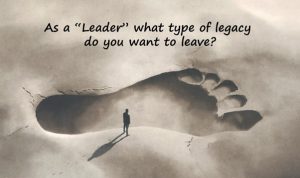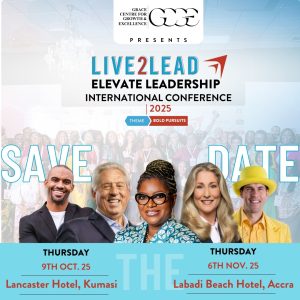JUDGMENT AS A LEADERSHIP LEGACY
“The Legacy You Leave Is The Life You Lead.” -Stephen Covey.
Every leader leaves behind a trail of decisions, some of which are visible, such as a bold market move or a structural reorganisation. Others are invisible but just as powerful, such as the people you promoted, the values you enforced, and the risks you chose to take or avoid.
These choices ripple through teams, cultures, and systems long after you’ve moved on. They shape your leadership narrative, not just in quarterly reports but in how people remember you, such as:
- Were you wise?
- Were you fair?
- Were you courageous?
- Were you trusted?
We often talk about strategy, execution, and results. But there’s a quieter force shaping the trajectory of your impact, which is “judgement.” According to Earl Nightingale, “when you judge others, you define yourself, not them.” This means judgement is not just a tool; it’s your legacy, and it shapes your leadership fingerprint in ways KPIs and quarterly numbers never will.
True legacy isn’t built in hindsight. It’s built on clarity, courage, consequence and awareness with which you choose today.
JUDGMENT, THE DEFINING FORCE OF LEADERSHIP
Judgement isn’t about having all the answers. As John Maxwell said, “Leadership is not about titles, positions, or flowcharts. It is about one life influencing another.’’ It’s about asking the right questions, pausing long enough to reflect, and navigating ambiguity with clarity and composure.
It’s the ability to:
- Weigh competing priorities without losing your values.
- Recognise when urgency is real, and when it’s just noise.
- Invite dissent, yet move forward decisively.
- See the second and third-order consequences of your actions, not just the immediate wins.
This judgement is deeply personal because every decision you make reflects your inner clarity, character, and willingness to lead from wisdom, not ego.
Don’t just make decisions, define your legacy. Click Here. to harness the power of judgement with the Maxwell DISC Assessment today.

THE DECISIONS THAT OUTLIVE YOU
Henry Wadsworth Longfellow observed that “We judge ourselves by what we feel capable of doing, while others judge us by what we have already done.” Think about the moments people remember you for, they’re often not your plans or presentations. They’re the moments when you have to choose:
- Whether to defend someone in the room when it wasn’t popular.
- Whether to cut corners under pressure or hold the line on principle.
- Whether to centre people, not just metrics, in your strategy.
Your judgement becomes the invisible architecture of your reputation—not what you post, but what people whisper when you’re not in the room.
It also becomes the foundation of your relationships. People will follow leaders who are not only smart but also sound, who think wisely, make informed decisions, and remain steady under pressure.
SO, WHAT DOES YOUR JUDGMENT SAY ABOUT YOU?
Think about a recent high-stakes decision you made. Ask yourself:
- What internal values guided me?
- Who did I consult, and who did I ignore?
- Was I managing risk or avoiding responsibility?
- Did I make the easy decision or the right one?
Carl Jung, in his book, Memories, Dreams, Reflections, said, ‘‘Until you make the unconscious conscious, it will direct your life and you will call it fate.’’ Leadership judgement doesn’t grow by accident. It grows through:
- Reflection: Learning from past decisions, especially the messy ones.
- Cognitive Diversity: Seeking perspectives that challenge your biases.
- Emotional Regulation: Leading yourself before you lead others.
- Moral Clarity: Knowing what you stand for, even under fire.
Great leaders lead with judgment. So, what does your judgment reveal? Click Here. to uncover your leadership edge with the Maxwell DISC Assessment tool today.

YOUR LEGACY IS BEING WRITTEN NOW
The good news is, you don’t have to get every decision right to leave a great legacy, but you do need to build a pattern of thinking, choosing, and acting that reflects who you are, what you value, and how you lead.
William James reflected that ‘‘The greatest use of a life is to spend it for something that will outlast it.’’ Because in the end, the decisions you make today are the story others will tell tomorrow, and that story, that legacy, begins with the strength, depth, and maturity of your judgment.
YOUR LEADERSHIP ACTION THIS WEEK:
Choose one strategic decision you’re currently facing. Don’t rush it. Instead, take 15 minutes to reflect:
- What values should anchor this decision?
- What’s the long-term consequence?
- Who could I learn from before I decide?
- Then, document your thought process, not just the what, but the why.
This is how great leaders are built and how legacies are shaped.
Strong judgment shapes strong leaders. Build lasting leadership with our Authentic Leader 30-Day Challenge https://forms.gle/5WtboshxvenoRLwaA. And lock in the habits that drive real leadership.
Leadership is not loud. It lives in what you approve without speaking, what you tolerate under pressure and the calls you make when no one’s watching. Judgment is the quiet compass shaping every legacy worth remembering.
If you’ve been leading on autopilot, chasing decisions, it’s time to shift. Book a Discovery Call https://scheduler.zoom.us/grace-centre-for-growth-excellence/discovery-meeting. Let’s find the one leverage point in your decision-making that could reshape your leadership story.
It’s not about perfect choices. It’s about intentional ones. Because judgment isn’t just a skill, it’s your fingerprint on the future.

Elevate your leadership at LIVE2LEAD 2025!
Join us in Kumasi and Accra, where forward-thinking leaders gather to exchange transformative strategies. Connect with like-minded professionals and cultivate the mindset that will drive your growth and success. Are you ready to take your leadership journey to the next level? Click HERE to learn more.
Come Along and Grow with Grace!
References
Stephen Covey, The 7 Habits of Highly Effective People
Carl Jung, Memories, Dreams, Reflections
John Maxwell, The 21 Irrefutable Laws of Leadership,


